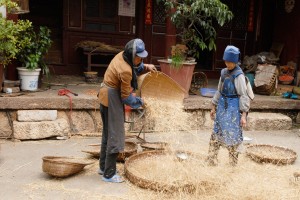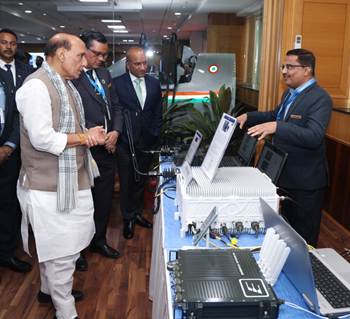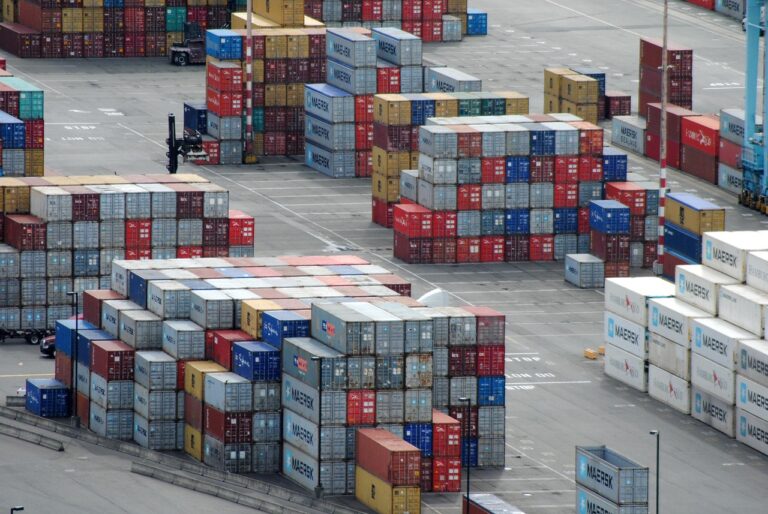
“China administering its wheat, rice and corn TRQs in a non-transparent manner”
Geneva: A dispute between the United States and China, this time concerning tariff rate quotas (TRQs) on certain agricultural products, has been referred to the World Trade Organization (WTO) arbitration. However, the Dispute Settlement Body (DSB) of the WTO has agreed to revert to the matter should a requesting member wish to do so after considering a request from China for the establishment of a panel to review China’s compliance with a 2019 ruling regarding its administration of TRQs.
At a meeting of the DSB on July 26, 2021, the US noted it had submitted a request on July 15, for WTO authorisation to impose retaliatory measures on Chinese imports in response to China’s failure to implement the 2019 WTO ruling in this regard. As China on July 23, contested the level of suspension of concessions proposed by the US, the matter was automatically referred to WTO arbitration.
China said it wished to make clear that it objects to the level of suspension of concessions proposed by the US and disagrees with the US allegation that China has failed to bring its measures into compliance with its WTO obligations. China said any claims of alleged inconsistency must first be addressed through WTO compliance proceedings before the level of suspension of concessions can be assessed.
China also submitted its first request for the establishment of a dispute panel to determine whether China has complied with the 2019 ruling on its administration of TRQs for the import of wheat, rice and corn. China and the US originally agreed that China would have until December 31, 2019 to comply with the ruling. That deadline was extended by mutual agreement on seven different occasions, with the last deadline expiring on June 29, 2021.
China said it fully implemented the panel ruling by the original December 2019 deadline by adopting a series of compliance measures. The US said China did not comply with the WTO ruling but has failed to specify on what basis it considers China’s implementation to fall short of full compliance. Article 21.5 of the WTO’s Dispute Settlement Understanding (DSU) states that where there is disagreement regarding measures taken to comply with a WTO ruling, such disputes shall be decided through recourse to these dispute settlement procedures, including wherever possible resort to the original panel.
Regrettably, the United States has instead chosen to pursue retaliation directly by filing a request under Article 22.2 of the DSU, China continued. The United States has further refused to engage with China on a sequencing agreement, as is customary practice in such a dispute. This has forced China to take the step of submitting a panel request to review its compliance efforts. China strongly believes the compliance panel will confirm China’s full compliance. Meantime, to harmonise different ongoing proceedings in this dispute, the arbitrator under Article 22.6 should suspend its work pending the conclusion of the Article 21.5 proceedings, China said.
The US said China continues to administer its wheat, rice and corn TRQs in a non-transparent and unpredictable manner. Not only is the public process by which China administers its TRQs non-transparent, but China also has refused US requests for additional information that would allow the United States to better understand how these TRQs have been administered in practice. Without such transparency, the United States and other WTO members are left without the basic information necessary to assess China’s compliance with fundamental WTO obligations.
For these reasons, the United States said it is not in a position to agree to the establishment of a compliance panel. The United States said it stands ready to work constructively with China to reach a resolution to this dispute, as it has done since adoption of the panel report.
On China’s procedural claims, the United States said that nothing in the DSU supports the view that arbitration on a request for WTO authorization must be suspended while compliance panel proceedings are ongoing. Where no sequencing agreement has been reached, as in the present case, a complaining member must request authorisation to retaliate within the timeframe specified in Article 22.6 of the DSU. Accordingly, in this proceeding, the United States has done so in a timely manner. Thereupon, the DSB agreed to revert to the matter should a requesting member wish to do so.
Meanwhile, the WTO members also agreed to the establishment of a panel at Canada’s request to examine measures in China affecting the import of canola seed from Canada.
Canada submitted its second request for the establishment of a dispute panel to examine two sets of measures affecting the importation of canola seed from Canada, in response to alleged repeated detection of quarantine pests in shipments from the two Canadian companies. Canada’s first request was blocked by China at the last DSB meeting on June 28, 2021. Canada reiterated that it was disappointed and concerned that sufficient scientific evidence to justify China’s canola measures had not been provided.
– global bihari bureau





